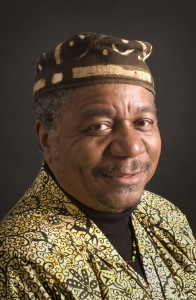When I took my TOEFL (Test of English as a Foreign Language) exam sometime in 2008, I knew it was a futile exercise and I approached the test venue with all the contempt I could muster (I got 110/120, by the way). The reason was because English to Nigeria was not a foreign language but a national one. Everyone who has gone to school, especially through a university like I had – has acquired a competence that is as native as anyone else in England, America, or Australia. And although there are isolated cases of poorly formed university graduates in Nigeria (as well as in some other post-colonial societies) whose grasp of the language would not improve even no matter the amount of input, it was safe to say that graduating from the university was enough proof that one was competent enough in the national language which had been one’s medium of instruction in school from around age two or much earlier (and six, for some).
My linguistics classes in the university opened my eyes to a few of the reasons for this standardized test. The linguist Braj Kachru’s famous work on English’s “concentric circles” divides the English speaking world into three places. The inner circle is where the language is spoken as the sole language (England, US, Australia, etc), the outer circle is where it is spoken as a colonial language (India, Nigeria, Philippines etc), and the expanding circle where it is spoken only to be able to interact with the rest of the world (Japan, China, Saudi Arabia etc). That definition successfully relegates the post-colonial British world into a second place where competence is measured not just by situation of birth as what can be proven through standardized test – a very problematic situation. According to Wikipedia entry on the matter, a person’s native language “is the language(s) a person has learned from birth or within the critical period, or that a person speaks the best and so is often the basis for sociolinguistic identity.”
In Nigeria, as in India, Philippines, Jamaica, Trinidad and many other former colonies of Britain (and the United States), contact and exposure to English for many occurs during the “critical period” and develops over time with more exposure to education and progress up the social ladder. Thus by the time one is old enough to graduate from the University (and for many far earlier than that), they are already sufficiently socialized not just in the language use but also in the cultural nuances that come with it to be able to pass for a truly native speaker. We have the media to thank for that as well. The presence of abundant corpus of brilliant literature from these places should be enough to put any doubt about this to rest. VS Naipaul, described as the master of “modern English prose” published his first novel The Mystic Masseur in 1957 when he was just 25. Wole Soyinka, Africa’s first Nobel Laureate in Literature already published his play The Lion and the Jewel in 1967 when he was 33. Chinua Achebe’s Things Fall Apart which is widely regarded as the archetypal African novel in English was published in 1957 when the author was just 28.
Now, our wikipedia definition continues: “In some countries, the terms native language or mother tongue refer to the language of one’s ethnic group rather than one’s first language.” This is precisely where my issue lies, especially if any of such countries include the United States of America where many “native speaker” citizen graduates of universities will perform very poorly on the TOEFL test. Most job openings for linguists today require that the applicants be “native speakers of English.” What one would wish is that this stipulation is not based on this second but the first definition of “native language.” It will be disastrous if this were not the case. The closest I got to finding out is a discussion I started a few weeks ago on Facebook about whether I – born and raised in Nigeria (with Nigerian English and sufficient access to both British and American linguistic and cultural conditioning) – would be considered a native speaker. All responders said that I would not. The reason was not that I don’t speak the language with native-like proficiency, it is that I acquired the language along with another one during my critical period. It is likely that if any of my Facebook friends were on the board of my job application, I may have to go apply elsewhere.
Luckily however, as I found out a few minutes ago, the list of countries exempt from taking the TOEFL now includes Nigeria. (When I took the exam, the only African countries exempted from taking it were Liberia and South Africa. Go figure.) I am therefore glad to hear this finally though it takes the sting out of the indignation that I had brought to writing this post. I had once suggested that American students begin to take the TOEFL before getting into universities as well in order to vet their English language proficiency. It’s not going to happen, of course, but the idea tickles me.

